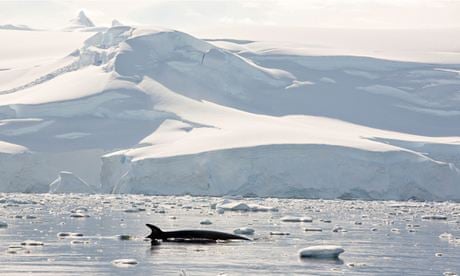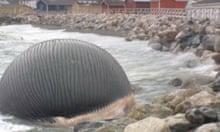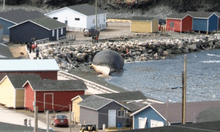The mystery source of a strange quacking sound coming from the ocean has been discovered.
The so-called "bio-duck" noise, which occurs in the winter and spring in the Southern Ocean, had confused researchers for over 50 years.
Scientists have now attributed the sound to underwater chatter of the Antarctic minke whale.
Submarine crews first heard the quacking sound – a series of repetitive, low-pitched pulsing sounds – in the 1960s.
Lead researcher Denise Risch, from the US National Oceanic and Atmospheric Administration north-east fisheries science centre in Massachusetts, told the BBC: "Over the years there have been several suggestions, but no one was able to really show this species was producing the sound until now."
The research team attached suction-cup sensor tags equipped with underwater microphones to a pair of minke whales off the western Antarctic peninsula in February last year, with the aim of monitoring their feeding behaviour and movements.
These were the first acoustic tags deployed on Antarctic minke whales, and the team compared their recordings with years worth of collected audio recordings to match the sounds. Researchers were able to identify the quacking noise, as well as downward-sweeping sounds previously linked to minke whales.
The sounds "can now be attributed unequivocally to the Antarctic minke whale," Risch and her team wrote in a study published in the Royal Society journal Biology Letters.
Researchers are hoping to retrospectively analyse previous recordings to investigate "seasonal occurrence and migration patterns" of the whales.
Scientists remain puzzled as to why the whales produce the sound, but it is thought that the animals make the noise close to the surface before they make a deep dives to feed.
Risch added: "Identifying their sounds will allow us to use passive acoustic monitoring to study this species. That can give us the timing of their migration – the exact timing of when the animals appear in Antarctic waters and when they leave again – so we can learn about migratory patterns, about their relative abundance in different areas and their movement patterns between the areas."








Comments (…)
Sign in or create your Guardian account to join the discussion